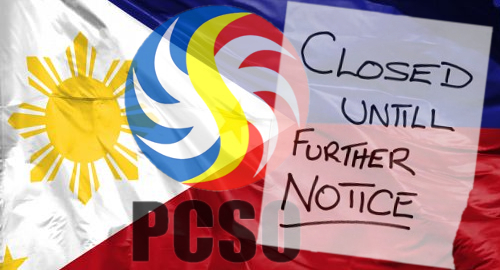 The Philippine lottery and small-scale gaming industry continues to reel after Friday’s surprise suspension of their operations by President Rodrigo Duterte.
The Philippine lottery and small-scale gaming industry continues to reel after Friday’s surprise suspension of their operations by President Rodrigo Duterte.
On Monday, local media quoted the Philippine National Police (PNP) saying that it had closed over 30k retail points of sale operated by the Philippine Charity Sweepstakes Office (PCSO) in accordance with Duterte’s orders. Two-thirds of these closed outlets were small town lottery (STL) operations, while the rest were a variety of Lotto, numbers and keno businesses.
Duterte’s Friday announcement accused the PCSO of “massive corruption,” apparently due to the state-run entity’s failure to remit the required share of its proceeds to the government like other government-owned and controlled corporations. A Commission on Audit report earlier this month claimed the PCSO was P8.4b (US$165m) in arrears for the period spanning 1994-2016.
Duterte’s office said Monday that the closed PCSO outlets will remain closed pending the results of a corruption probe by the National Bureau of Investigation (NBI). Justice Secretary Menardo Gueverra justified the crackdown by saying private gaming licenses were “not a contractual right but a mere privilege that may be revoked at any time.”
The PCSO’s STL business was originally launched as a means to decrease interest in the illegal jueteng numbers game but the government claims jueteng operators are using the STL franchises as a front to continue offering their illegal products. Duterte’s spokesperson claimed that these illegal fronts were depriving the government of at least P73b ($1.43b) in revenue per year.
Ironically, the crackdown may serve to boost jueteng’s appeal, as the millions of small-time gamblers now have no legal option at their disposal. Even PNP Gen. Oscar Albayalde conceded that such a resurgence was “a possibility,” although he stopped short of saying it was an inevitability.
Some local politicians are expressing concern that Duterte’s crackdown was too broad, in that the PCSO’s Lotto product is computerized and closely monitored, making corruption far less likely. Other, perhaps more cynical pols have suggested Duterte’s action was a precursor to the president turning over the PCSO’s profitable operations to friends and allies.
The Rappler media outlet, which has long proved a thorn in Duterte’s side, quoted the head of the Presidential Anti-Corruption Commission saying Duterte’s actions weren’t in response to any report it had filed. Instead, sources told Rappler that Duterte was prompted to act after certain allegedly corrupt PCSO officials resisted a PCSO board decision to reassign them to new tasks.
Regardless of his motives, Duterte’s actions will have consequences for anyone caught with their finger in the government’s cookie jar. On Monday, the Supreme Court gave all trial court judges until August 15 to submit all cases involving the PCSO. The order concerns all cases, pending or concluded, dating back to January 2018. The Court claimed this inventory was necessary due to the “serious allegations of massive corruption” aimed at the PCSO and its franchisees.